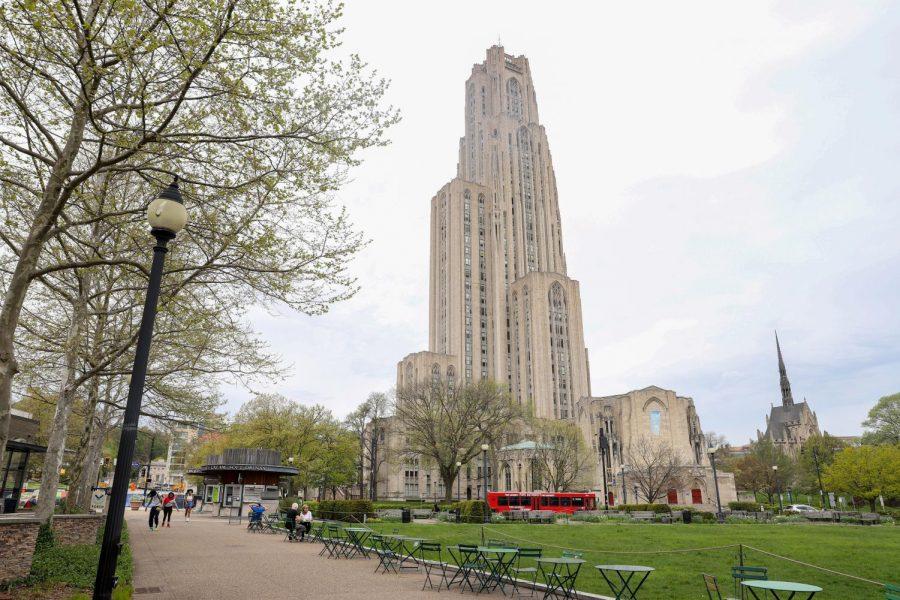Pitt files brief in support of lawsuit against new ICE guidelines
The Cathedral of Learning watches over an empty Pitt campus.
July 13, 2020
Pitt filed an amicus brief on Monday supporting Harvard University and the Massachusetts Institute of Technology’s lawsuit against the Trump administration, fighting for a reversal of U.S. Immigration and Customs Enforcement’s new guidelines that would force international students to leave the country if classes are online only in the fall.
Existing regulations generally ban international students from taking online-only classes while living in the United States, though ICE temporarily waived this rule this spring and summer due to the COVID-19 pandemic. University spokesperson Kevin Zwick said one of Pitt’s main reasons for filing the brief was a lack of reasoning behind the reversal.
“In the face of a worsening pandemic, there is no health and safety rationale offered for replacing the previously announced exception that allowed students to remain,” Zwick said.
[Read: ‘What did we do to deserve this?’: International students worried about new ICE guidelines]
After ICE issued the guidance on July 6, Harvard and MIT sued the Trump administration on July 8. Several large states and cities, as well as numerous large universities, such as nearby Carnegie Mellon and Pitt rival Penn State, are also filing court papers in support of the suit.
Pitt’s legal filing follows more than 1,000 people signing an open letter to the administration urging it to adopt 11 measures to better protect international and immigrant students. Many of the measures focus on making Pitt a “sanctuary campus,” where students would be protected from ICE. The letter also demanded Pitt pursue legal action against ICE and the Trump administration alongside other universities.
In the 20-page document, the University argued that international students are “absolutely vital” to Pitt. It said international students were necessary to the success of many of Pitt’s undergraduate and graduate programs, athletic teams as well as research currently being conducted on a COVID-19 vaccine at the Center for Vaccine Research.
“The undeniable value of the diversity fostered by international students is precisely the reason for why Pitt has committed to its strategic plan to promote diversity and inclusion and to embrace the world,” Pitt said in the brief. “To remain silent in the face of the July 6 directive would undermine the University’s core values.”
The brief also stated that international students are important to Pittsburgh’s economy and contribute about $280 million every year.
Pitt also asserted that ICE’s new guidelines will create “uncertainty and anxiety” for international students. The University also said the guidelines would disrupt its plans for the fall by eliminating international students’ personal choice on whether they wanted to attend classes in-person or online, thus putting themselves and others at a health risk with a worsening pandemic.
Zwick said even though Pitt is compliant with ICE’s new guidelines under its new Flex@Pitt teaching model, the University wants to mitigate uncertainty for students at other universities amid a pandemic.
“The sudden, arbitrary policy shift creates uncertainty for hundreds of thousands of students at many other institutions,” Zwick said. “In the midst of the pandemic, students should not be burdened by even the suggestion of a choice between their health and their education.”
The University plans to implement both Flex@Pitt and a three-tiered reopening system to allow for in-person teaching to resume during the ongoing COVID-19 pandemic. In-person instruction at Pitt would only be allowed if Allegheny County remains in the green phase of reopening, per state rules, and the University itself moves to its green-equivalent reopening status.
Zwick added that the new guidelines place a huge administrative requirement on the University, forcing them to re-file eligibility requirements for 3,500 international students. It would also have to document that each student is enrolled in the proper number of in-person classes.








